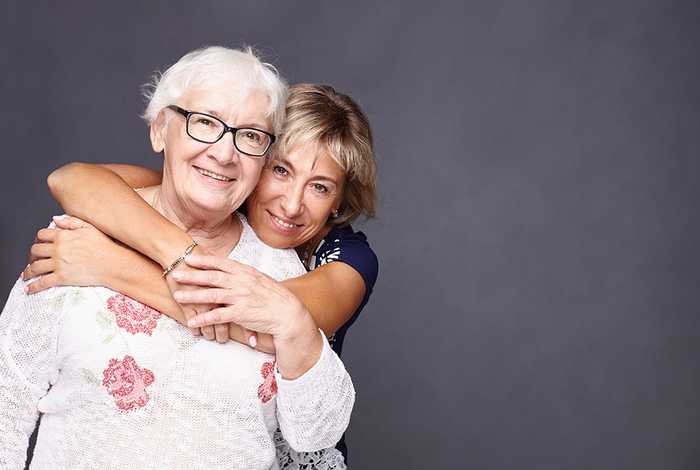Posted by Rachel Bashford
How to stay positive around Blue Monday
The January blues can be tough, especially for the over 65s. Here are some useful tips to help keep spirits up in winter.

This article will explore important details around:
- Blue Monday and how this may affect seniors.
- The science behind Blue Monday
- Prioritising healthy activity.
- How routines can help boost positivity.
What is Blue Monday?
Blue Monday has become commonly linked with the third Monday in January and is said to be the saddest day of the year. In 2023, Blue Monday falls on Monday 16th January. Although there have been many attempts to analyse this notion scientifically, the term was actually conceived by a travel company as an incentive to encourage more people to book holidays during the winter months.
In 2005, the travel company declared that Blue Monday had been calculated as a result of a detailed analysis of weather conditions and other factors, such as tighter financial conditions after the Christmas period. However, no scientific research has proven that Blue Monday is officially the bleakest, gloomiest day of the year.
Nevertheless, it can’t be denied that during the winter – and especially in January – people can often feel a little down and out of sorts. This may be the result of a range of events, situations and environments people find themselves in.
Blue Monday has become intrinsically interwoven with the concept of the January blues. This is more historical in nature and may be influenced by a variety of factors. After the intense socialisation period of Christmas and New Year, where people spend quite a bit of time in the company of family and friends, some may experience a lowering of spirits once family has gone home.
Cold weather, rising bills and going back to work after the holidays may also impact the way people feel. Failing to keep new year resolutions related to health, fitness and diet or feeling under stress to keep going with these commitments could also create negative emotional pressure.
This clip from Click On Detroit explores how older people may feel a little more discouraged during the winter period.
The NHS have published research that highlights around 50% of over 55s have experienced common mental health problems, such as depression and anxiety. Many report that these periods are more common during the colder, winter months.
It’s interesting to analyse the triggers that may transition seniors into feelings of loneliness and worry. The death of loved ones (36%), ill health (24%) and financial worries (27%) are the most common triggers for mental health problems.
This Bupa video discusses how older people can often experience stress around life events in more detail.
What is of great concern to healthcare professionals and those invested in the support of older people is that around a third of seniors (35%) say they did not know where to go for help and support. Only around 15% of older people with mental health conditions are receiving support from the NHS.
With this in mind, is there any factual basis for the concept of Blue Monday?
The Science Behind Blue Monday
According to the NHS, millions of people in the UK often suffer a ‘low mood’ or depression during the winter, known medically as seasonal affective disorder (SAD).
In addition, the NHS states that there is scientific evidence backing the idea that people’s moods are sometimes affected by the seasons. With people who experience SAD, it’s believed they have higher levels of melatonin in their bodies as a result of a lack of exposure to adequate natural light.
The charity MIND explains that this raised quantity of melatonin apparently causes fatigue or depression and can trigger other symptoms, such as anxiety and agitation.
This clip from Mental Health TV explores the nature of seasonal affective disorder in more depth and the reasons why it occurs in some people.
Prioritise Healthy Activity
Seasonal slumps are common for most people at some point in their lives. The reason why older people may undergo these more regularly than others could be the result of a lowering of physical activity over time.
The Mental Health Foundation has conducted research into the effects of low-impact physical activity on mood and how it can boost positivity or feelings of wellness. Their research shows that there is a 20-30% lower risk of depression and dementia in adults that participate in daily physical activity.
Both the NHS and MIND promote the fact that physical activity can be an alternative treatment for depression, anxiety and sleeplessness. Gentle exercise can be a powerful and effective remedy for low mood. The Department of Health recommends around 2.5 hours of movement per week or around 30 minutes, 5 days a week.
So how can older people try to gain a half hour of activity a day in a way that suits their lifestyle? There is a huge range of activities and events available that can help. Just simply walking for 15 minutes twice a day can achieve this goal. The Mental Health Foundation suggests starting small and building up over time.
For those over 65s who live in retirement communities, there are often gyms or exercise classes on site for people who are happy to join in. In care homes, daily and weekly activities are usually part of the fabric of the day for residents who like participating and feeling part of the community, from yoga to music and dance.
Age UK reveal how they support older people to enjoy physical activity that boosts wellbeing and combats seasonal low moods with the Generation Games programme in Oxfordshire.
Boosting Mood with Food
An integral part of good health is the food we eat and there are lots of different foods that can contribute to better mood. Serotonin, or the ‘feel-good’ hormone, needs Vitamin D to make it active. We can gain a certain amount of this from daylight and the sun’s rays being absorbed through our skin. However, this is trickier in the winter, with fewer daylight hours.
As a result, eating foods containing Vitamin D, such as eggs and oily fish including salmon, mackerel and tuna, can support a greater level of serotonin which will help people feel better and enhance their mood.
It’s also true to say that foods containing omegas 3 and 6 can also support seniors to avoid seasonal slumps, such as nuts, seeds, oily fish and pumpkin. Tesco published these recipes to help people beat Blue Monday.
Routines Encourage Positivity
When you don’t have a daily routine, life can feel a little adrift and unregulated, leading to feelings of anxiety or concern about future unpredictability. Getting into a routine can really support seniors if they are looking for a certain amount of reliability and stability.
Following a daily or weekly schedule may sound too much for some, but in reality most people are guided by one routine or another throughout their lives – school, work or family.
There’s plenty of evidence that waking around the same time each day and following the morning routine that suits you best can increase positive emotions at the start of the day. Moreover, healthy eating plus gentle physical activity generates feelings of happiness and therefore encourages older people to feel better during the winter months.
Eating meals at around the same time each day and making time for social contact when you’re ready are also helpful tips to promote positivity in January. Some seniors like to keep a journal and map out their feelings or mood changes to help support a better understanding of their emotions.
A really important component of feeling better is to talk about what is bothering you. Finding the words can sometimes be hard but thinking about a person who you can trust and feel comfortable discussing your feelings with can be a real relief when it comes to combatting the effects of Blue Monday and a lower mood.
This video from Age UK explores how talking things through is a powerful tool in improving how we feel, especially as we get older.
What is the best way to find information about later living care and support in retirement?
Growing numbers of people are using Autumna's online directory of over 26,000 care providers and retirement living operators, to discover their best options for later life.
If you need some help, why not complete this short form and let us know exactly what later life needs are important to you? The Autumna advice line team will then filter your search and send you a shortlist filtered for those providers, in your search area, that can help.
If you'd prefer to speak to us, call our Advice Line on 01892 335 330. The line is open seven days a week. (8:30am - 5:30pm Mon-Fri, 10am - 5pm Sat, 10am - 4pm Sun).
Alternatively email us here: info@autumna.co.uk
Need some help finding care services or retirement properties?
Let our expert team of advisers get your search off to a great start.
Tell us a little about your needs and we'll send you a bespoke shortlist of options! Click the button below to begin, it takes just a few minutes.
Other articles to read
Autumna Blog

Older Persons Care Advice
How to talk to your parents about care options
October 2nd, 2025
Learn how to talk to your parents about care options with compassion. Explore choices together and plan for the future with dignity and respect.

Older Persons Care Advice
Guide to empowering and promoting independence in older age
September 30th, 2025
Read our practical guidance for families on empowering and promoting independence in older age, helping loved ones stay confident and in control.

Older Persons Care Advice
Ultimate guide to jointly owned property and care home fees
September 26th, 2025
Understand jointly owned property and care home fees, how assessments work, and steps to protect your finances and plan ahead with confidence.
Frequently Asked Questions
Blue Monday is always the third Monday in January.
Blue Monday is always the third Monday in January so, in 2023 it falls on 16th January
According to YouGov research in 2017 for Age UK, the common triggers for mental health problems are: The death of loved ones (36%), ill health (24%) and financial worries (27%)
SAD stands for Seasonal Affective Disorder and is associated with higher levels of melatonin melatonin in the body as a result of a lack of exposure to adequate natural light.






